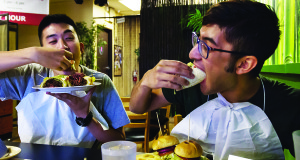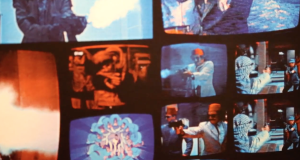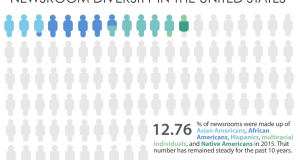As Asian bettors swell the ranks of the casino VIP, gambling houses are increasingly reflecting the ancient Chinese principles of feng shui in their design, from flourishes of red and gold in color schemes, avoiding exposed lightbulbs to incorporating the lucky number 8.
The designs are one of the most physical representations of the growing influence of Asians in the gaming world. “Oh, yes, absolutely, feng shui is a big part of everything we do,” said Bruce Bommarito, vice president of international marketing at Caesars Entertainment. “Right down to the littlest detail.”
Asian gamers, especially Chinese ones, tend to be more superstitious than their Western counterparts, Bommarito said. Some Chinese gamers even travel with personal feng shui experts, he said.
Casinos have left little to chance, fearing Chinese gamblers may refuse to wager at their tables if they don’t reflect feng shui principles.
Paul Heretakis, owner of WESTAR Architects, a firm that’s done work for the Venetian and properties in Macau, says he’s learned to incorporate lots of red and gold—colors signifying good fortune—and to avoid exposed lightbulbs, which suggest death.
At Caesars, all its VIP villas — hotel rooms that start at $25,000 a night — begin with the number 8, a lucky digit in China. At Wynn properties, floors 40 through 49 are missing, because “four” in Mandarin sounds like “death.”
“My theory is, I don’t know if all that feng shui stuff works, but why take a chance?” Bommarito, of Caesars, said.
Some of the feng shui design changes along the Strip have been very public. MGM Grand redesigned its iconic lion’s mouth entrance in 1998, after Chinese gamblers complained that walking through the gaping mouth was bad feng shui. Some said it made them feel like they were being eaten alive.
At the Venetian and Palazzo casinos during this year’s Chinese New Year celebrations, staff hung 28 monkeys from a 38 foot tall tree in another nod to lucky number 8, said Dana Beatty, director of floral horticulture at the casinos.
But most of the feng shui changes happen in the exclusive spaces frequented only by VIP guests, far from the areas the average casino patron would see.
Heretakis, of WESTAR Architects, said one of the most extreme examples of feng shui design in his portfolio is a custom gaming room his firm designed at the Venetian in 2012 for a high roller he declined to name. He said a feng shui expert used intel about the gambler—like his birthdate and zodiac sign—to create the room’s design. “Everything revolved around him,” Heretakis said.
But for all the effort casinos pour into feng shui for their wealthiest guests, some tourists strolling Fremont Street Tuesday evening said the design touches, are, at most, a nice afterthought.
Ken Tenno of Hawaii said he has “not really” noticed feng shui influence in the casinos he frequents. In fact, he said, he thinks casinos could do more to tap the Asian market.
Yi Cheng Huang, who is from Taiwan, said he has noticed number eights and other feng shui elements in gaming spaces, but the design doesn’t influence whether or not he is willing to gamble.
But, he noted, it is aesthetically pleasing. “It’s fancy,” Huang said. “I think it looks nice.”
 VOICES Publishing from the AAJA National Convention
VOICES Publishing from the AAJA National Convention








